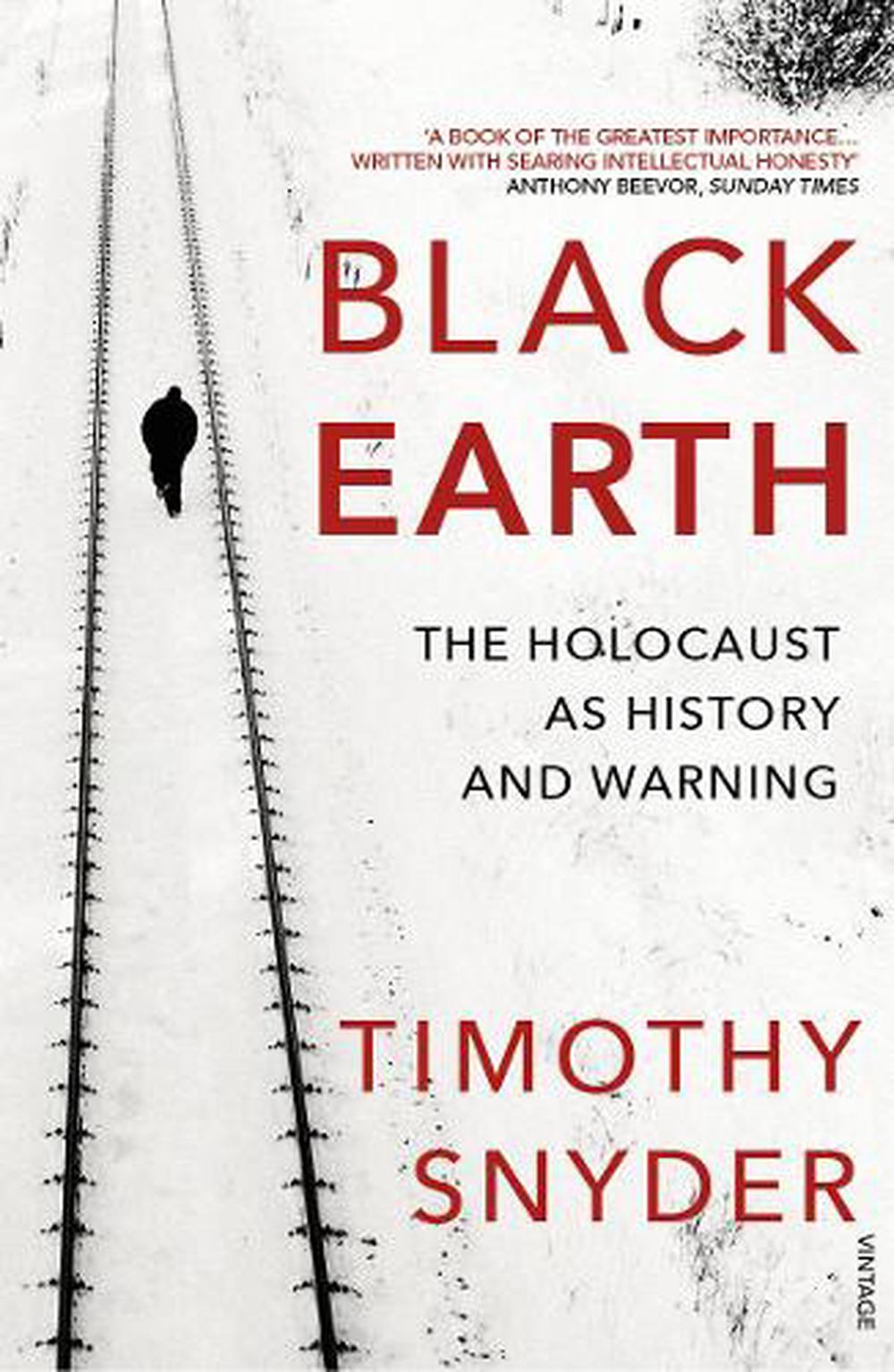
Black Earth
The Holocaust as History and Warning
$39.70
- Paperback
480 pages
- Release Date
12 June 2016
Summary
A radical reframing of the Holocaust that challenges prevailing myths and draws disturbing parallels with the present. LONGLISTED FOR THE 2015 SAMUEL JOHNSON PRIZE
We have come to see the Holocaust as a factory of death, organised by bureaucrats. Yet by the time the gas chambers became operational, more than a million European Jews were already dead – shot at close range over pits and ravines. They had been murdered in the lawless killing zones created by the German colonial war in th…
Book Details
| ISBN-13: | 9781784701482 |
|---|---|
| ISBN-10: | 1784701483 |
| Author: | Timothy Snyder |
| Publisher: | Vintage Publishing |
| Imprint: | Vintage |
| Format: | Paperback |
| Number of Pages: | 480 |
| Release Date: | 12 June 2016 |
| Weight: | 330g |
| Dimensions: | 200mm x 131mm x 29mm |
You Can Find This Book In
What They're Saying
Critics Review
Timothy Snyder’s bold new approach to the Holocaust links Hitler’s racial worldview to the destruction of states and the quest for land and food. This insight leads to thought-provoking and disturbing conclusions for today’s world. Black Earth uses the recent past’s terrible inhumanity to underline an urgent need to rethink our own future – Ian KershawA wholly readable and utterly persuasive attempt to get us to look at the Holocaust in a different light. I read it twice, aghast but gripped by the moral abyss into which I was plunged on each page * Observer *Black Earth is provocative, challenging, and an important addition to our understanding of the Holocaust. As he did in Bloodlands, Timothy Snyder makes us rethink those things we were sure we already knew – Deborah LipstadtPart history, part political theory, Black Earth is a learned and challenging reinterpretation – Henry A. KissingerIn this unusual and innovative book, Timothy Snyder takes a fresh look at the intellectual origins of the Holocaust, placing Hitler’s genocide firmly in the politics and diplomacy of 1930s Europe. Black Earth is required reading for anyone who cares about this difficult period of history – Anne ApplebaumTimothy Snyder’s Black Earth is not only a powerful exposure of the horrors of the Holocaust but also a compelling dissection of the Holocaust’s continuing threat – Zbigniew BrzezinskiTimothy Snyder is now our most distinguished historian of evil. Black Earth casts new light on old darkness. It demonstrates once and for all that the destruction of the Jews was premised on the destruction of states and the institutions of politics.I know of no other historical work on the Holocaust that is so deeply alarmed by its repercussions for the human future. This is a haunted and haunting book—erudite, provocative, and unforgettable – Leon WieseltierTimothy Snyder argues, eloquently and convincingly, that the world is still susceptible to the inhuman impulses that brought about the Final Solution. This book should be read as admonition by presidents, prime ministers, and in particular by anyone who believes that the past is somehow behind us – Jeffrey GoldbergAlways readable, highly sophisticated, and strikingly original – Bernard Wasserstein * Jewish Chronicle *Black Earth is mesmerizing – Edward Rothstein * Wall Street Journal (Europe) *
About The Author
Timothy Snyder
Timothy Snyder has been called ‘the leading interpreter of our dark times’. As a historian, he has given us startling reinterpretations of political collapse and mass killing. As a public intellectual, he has turned that knowledge towards counsel and prediction, working against authoritarians and populists. After a quarter century at Yale, he now teaches history at the Munk School in the University of Toronto and his books, which have been published in over forty languages, include Bloodlands, Black Earth, On Tyranny, Road to Unfreedom, Our Malady and On Freedom. His work has inspired poster campaigns and exhibitions, sculptures, a punk rock song, a rap song, a play and an opera, and he has appeared in over fifty films and documentaries.
Returns
This item is eligible for free returns within 30 days of delivery. See our returns policy for further details.




